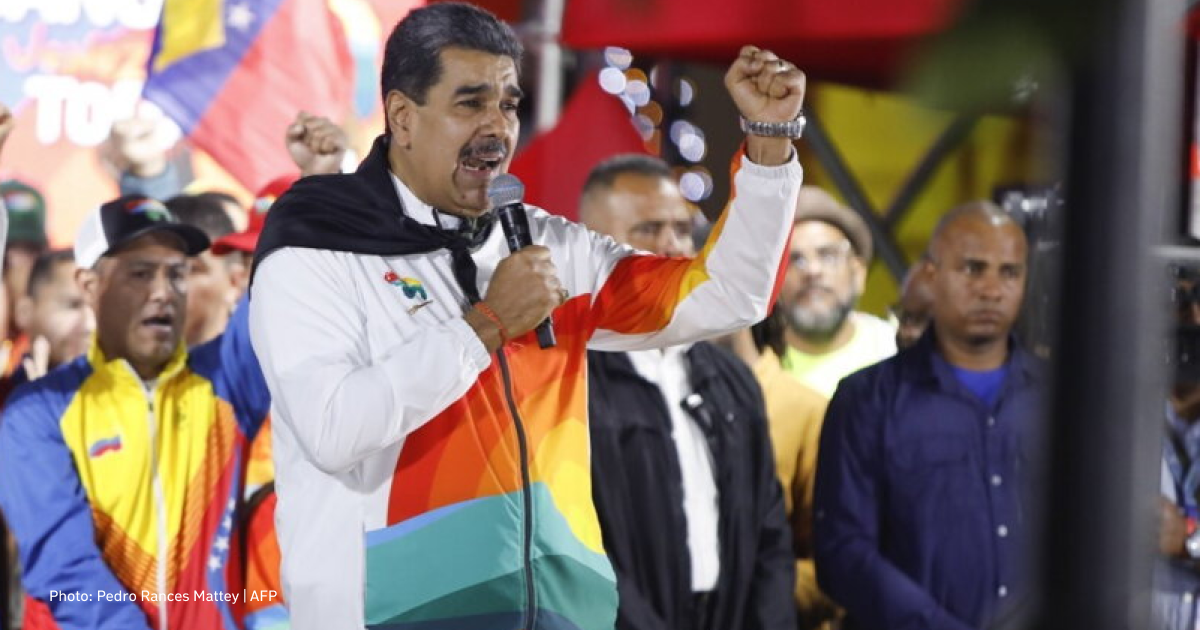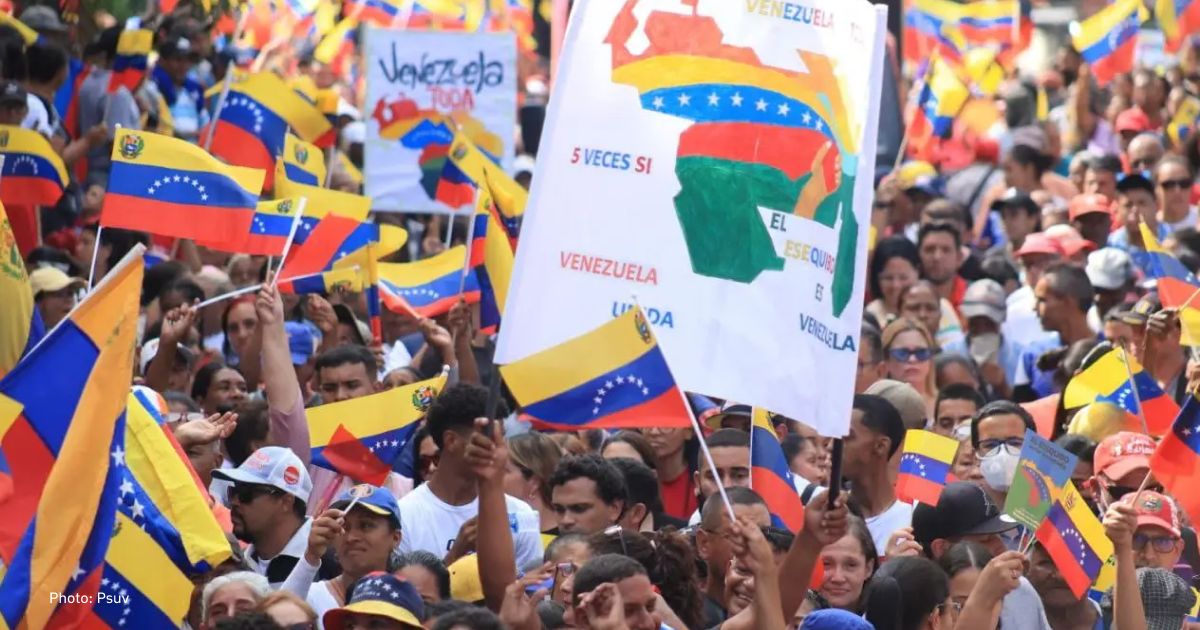Venezuela announces its accession to the country of Essequibo, located in independent Guyana. So what's going on?
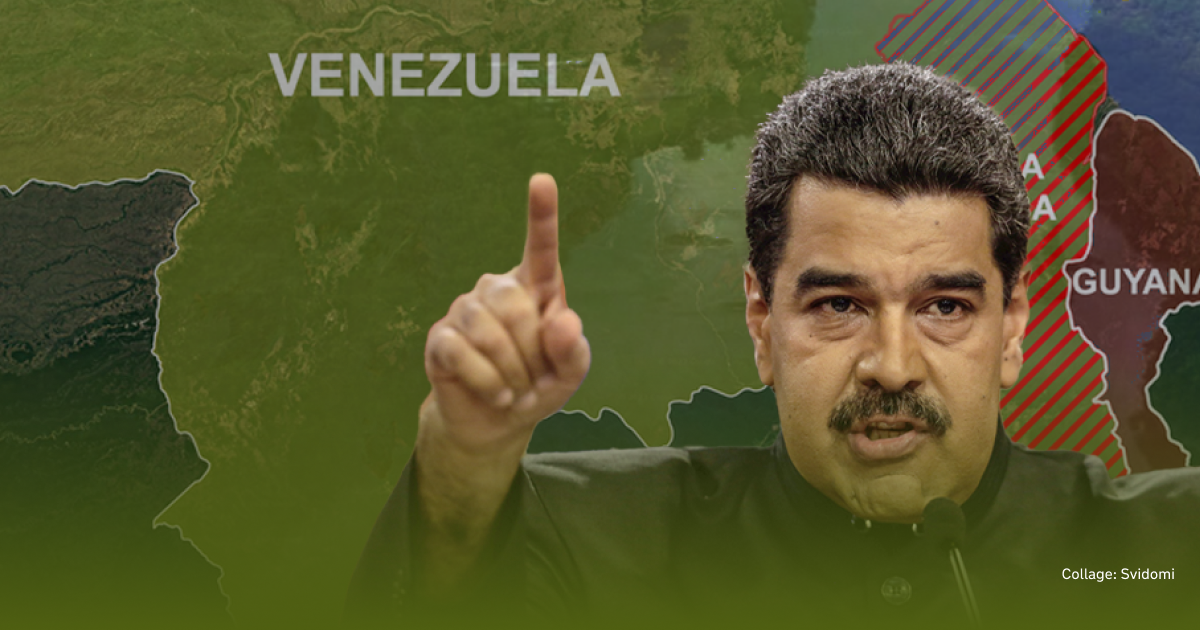
Venezuelan President Nicolás Maduro has announced the accession of Essequibo, or Esequiba as it is known in Venezuela, a region located in neighbouring independent Guyana. The area is to become the 24th state of Venezuela.
The publication Ultimas Noticias reports.
On December 1, 2023, the UN court ordered Venezuela to refrain from any decisions that would change the situation in Essequibo. Despite this, a referendum was held in Venezuela on December 3.
Venezuelans were offered to answer five questions, including whether Venezuela should reject the 1899 arbitration award to give Essequibo to Guyana and the decision of the International Court of Justice.
They were also asked whether Venezuelan citizenship should be granted to residents of the new "State of Guyana Essequibo" — now called the Guyanese.
According to the government, more than 95% of participants supported accessing part of Guyana to Venezuela.
The head of the electoral commission, Elvis Amoroso, declared a "victory" with a turnout of more than 10.5 million voters out of Venezuela's 28 million population.
However, citing intelligence, The Guardian says the turnout did not exceed 10%.
The newspaper also writes that voting stations across the country were largely quiet.
Guyana's Minister of Foreign Affairs Hugh Todd said that Venezuelans had "sent Maduro a very strong message", and sources in Guyana's government told The Guardian that they were "relieved" by the surprisingly poor turnout.
In response, Guyana said it would seek UN Security Council assistance if Venezuela moves on the disputed region after the vote.
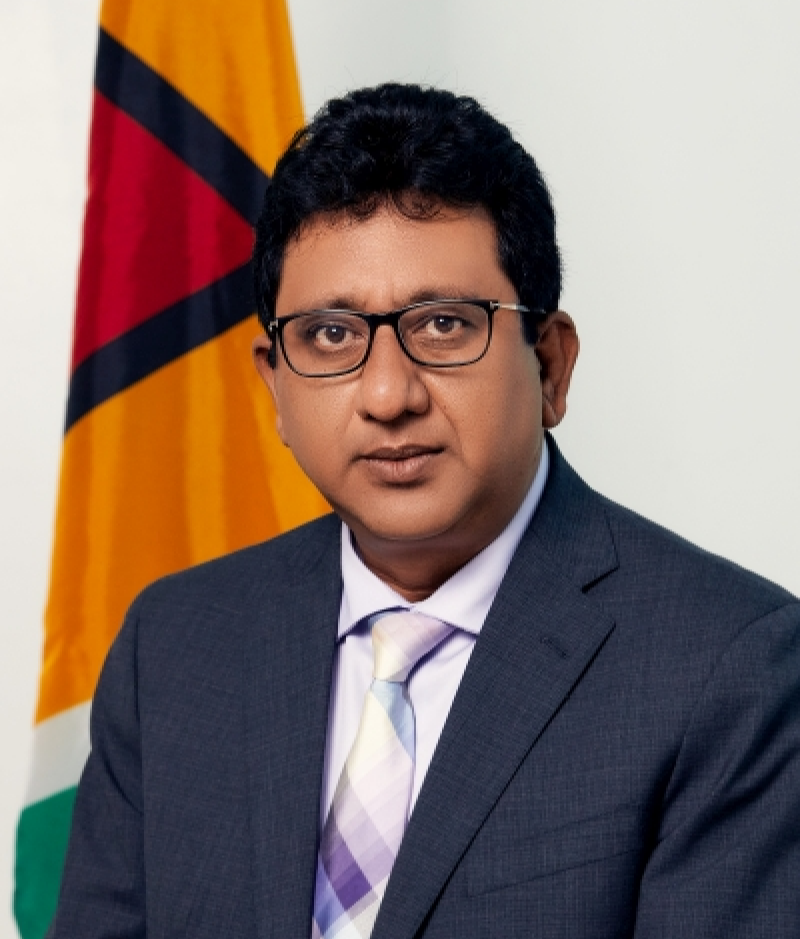
Any action or any attempt to take any action pursuant to the referendum will necessitate a resort to the UN Security Council as an injured party,
Guyana's Attorney General Anil Nandlall told AFP.
However, this did not prevent the Venezuelan president from presenting a new map of the country, which included the territory of Essequibo. The Venezuelan government also announced the creation of a commission to "protect" the region.
Why does Maduro want to annex Essequibo to Venezuela?
For a long time, Guyana was poor, and its inhabitants migrated to other English-speaking countries. Essequibo occupies almost three-quarters of Guyana.
Venezuela has claimed these territories since 1811, when it gained independence from Spain, and Essequibo became part of the British colony.
In 1899, the International Court of Arbitration recognised Essequibo as a British territory. Guyana declared its independence only in 1966.
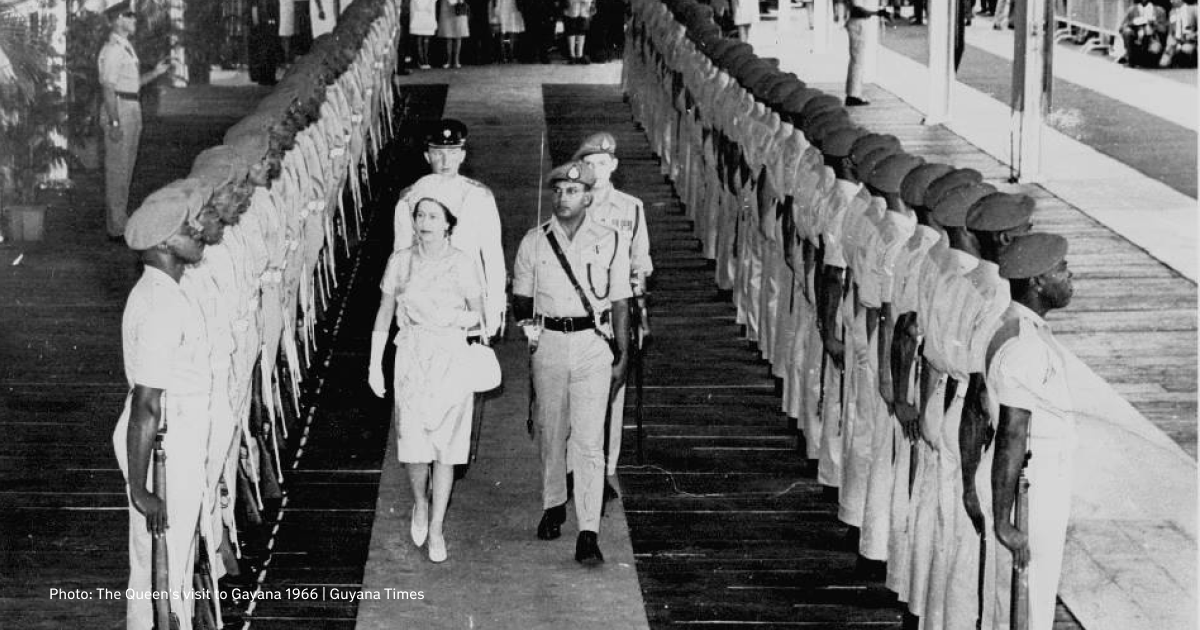
However, Venezuela did not give up its claim to the Essequibo region.
After 2015, when the oil company ExxonMobil discovered more than 25 oil fields offshore Guyana, the controversy between Guyana and Venezuela escalated. In 2020, about 360,000 barrels of oil were produced there; by 2028, the rate is expected to increase to 1.2 million per day.
In 2018, Guyana appealed to the International Court of Justice to recognise Essequibo as part of the country. But the court still needs to make a decision.
On January 7, 2021, Maduro issued a decree recognising 200 nautical miles of seabed from the Orinoco Delta to where Guyana found oil as Venezuelan.
After the referendum on December 3, the Venezuelan president said he would “immediately” proceed “to grant operating licenses for the exploration and exploitation of oil, gas and mines in the entire area of our Essequibo.”
He also ordered the creation of local subsidiaries of Venezuelan public companies, such as state-owned oil giant PDVSA and mining conglomerate Corporación Venezolana de Guayana.
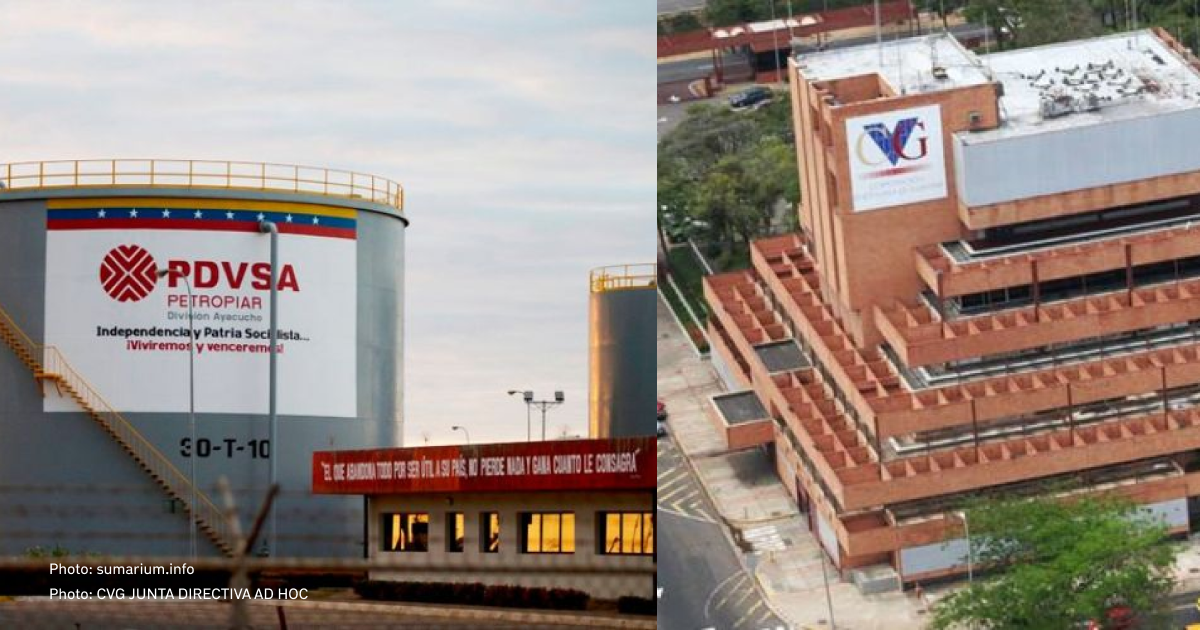
Maduro ordered companies operating in the region under contracts concluded with Guyana to cease operations within three months.
In addition to the financial attractiveness of the region, according to International Crisis Group analyst Phil Gunson, Maduro wants to use Essequibo's reserves to divert attention from Venezuela's internal problems and stay in power as long as possible.
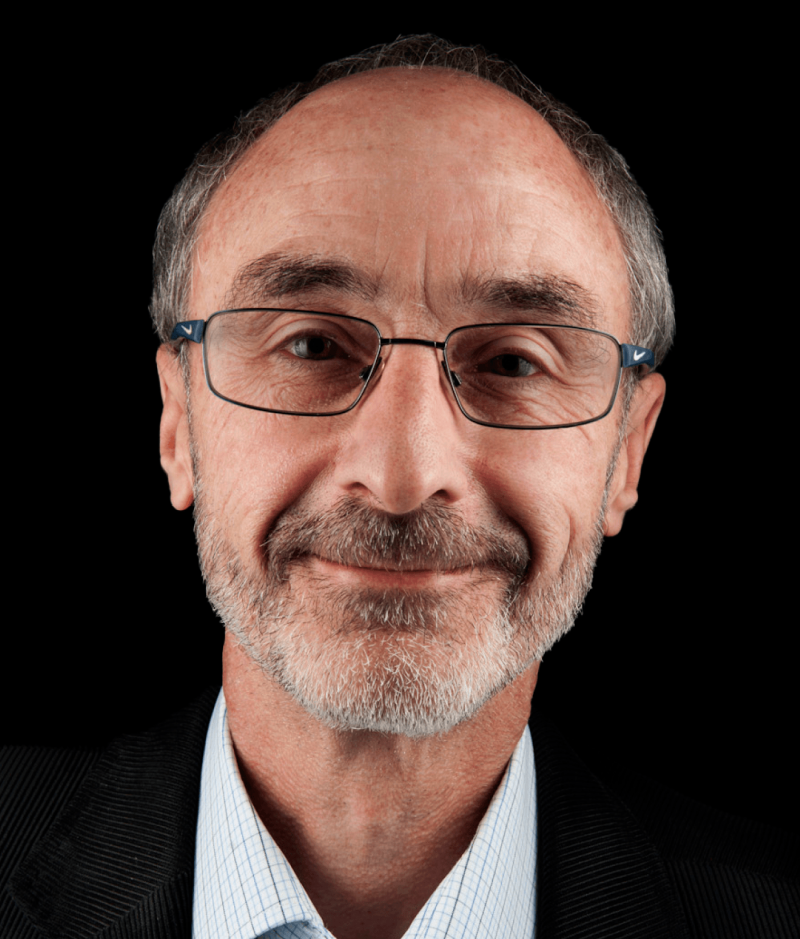
Maduro needs to wrap himself in the flag for electoral reasons, and obviously, a territorial dispute with a neighbour is the perfect excuse,
said Phil Gunson.
Gunson adds that possible referendum fraud " makes the chances of even a semi-free and fair [presidential] election next year even more remote."
Potential for a Venezuelan military invasion of Guyana
In October 2023, the Venezuelan military began building an airstrip near the Essequibo border, ostensibly for the region's development.
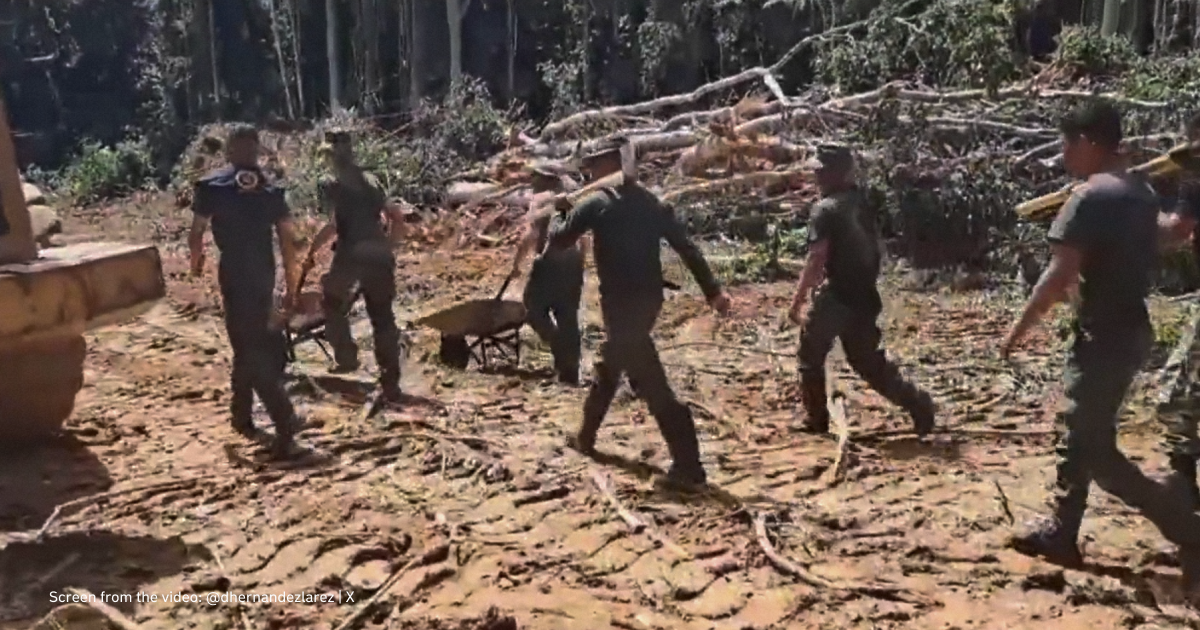
"Let no one make a single mistake. Essequibo is ours, every square inch of it," Guyana's President Mohamed Irfaan Ali responded.
In a statement on December 5, he said that Guyana's presidential administration had appealed to the United States, Brazil, the United Kingdom, France, the UN Secretary-General and the US Southern Command, which oversees military operations in Central and South America and the Caribbean.
In November, Guyana's Prime Minister Mark Phillips addressed the Organisation of American States and accused the Venezuelan government of increasing its military presence near the border.
On November 23, the Brazilian armed forces met with the Guyana Defence Force. Brazil supported Guyana and decided to increase its military presence near its northern border.
According to the Military Balance, Venezuela's armed forces have 123,000 soldiers. Guyana's army has three thousand soldiers.
"Maduro will be completely isolated because he has virtually no support anywhere in the world - not even among his traditional allies like Cuba," added the analyst from the International Crisis Group.
Guyana's Foreign Minister, Hugh Todd, said the country remains on "high alert", although they have been assured that Venezuela has no intention of invading.
"But while we believe that diplomacy is the best option, we are a nation state, and we have to protect our people. Therefore, we will not rule out any option necessary to ensure that we can protect and preserve our sovereignty and territorial integrity," said Guyana's foreign minister.
Response of other countries to the referendum
The US State Department said it supported a peaceful dispute resolution and that a referendum could not resolve the issue.
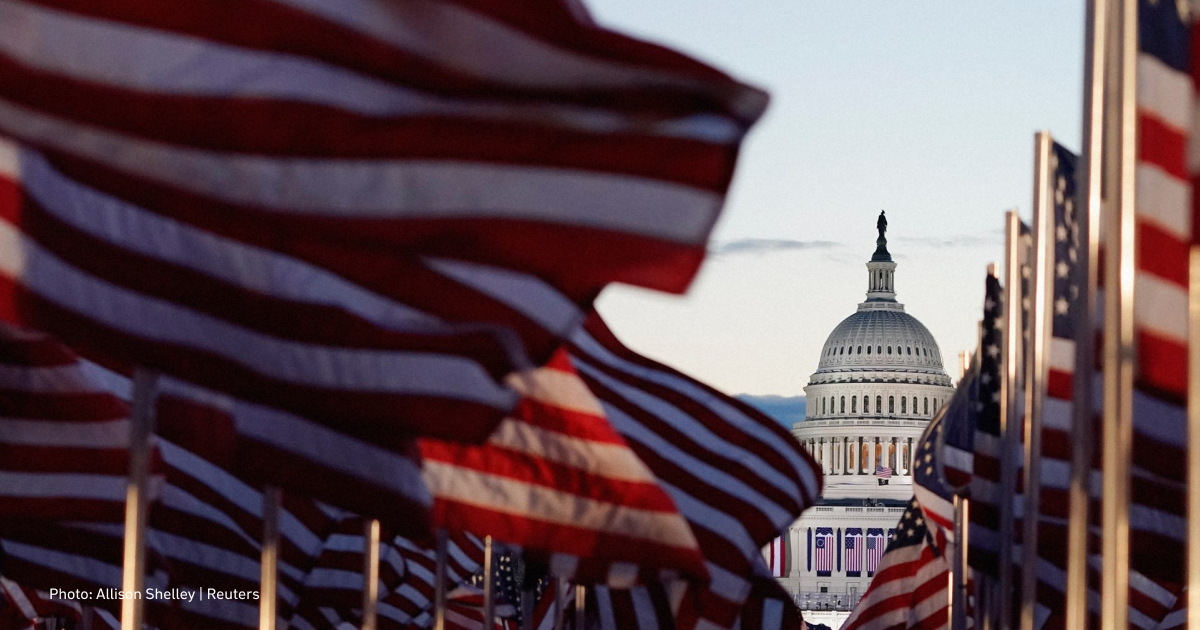
The Ministry of Foreign Affairs of Ukraine reacted to the events by emphasising the need to comply with the decision of the International Court of Justice, which ordered Venezuela to refrain from any actions that would change the situation in Essequibo.
"Any disputes and disagreements should be resolved only based on the mechanisms provided for by international law, following the purposes and principles set out in the UN Charter," the Ukrainian Foreign Ministry said in a commentary.
The Guyana News Source reported that on December 6, foreign diplomats working in Guyana were summoned to the Ministry of Foreign Affairs.
Among the ambassadors who met with Guyana's Ministry of Foreign Affairs team were Ambassador Nicole Theriot, British High Commissioner to Guyana Jane Miller, and Chinese Ambassador Guo Haiyan.
In a commentary to News Source, Haiyan said that the Chinese government hoped for a peaceful resolution.
High Commissioner for the Republic of Trinidad and Tobago to The Cooperative Republic of Guyana, Conrad Enill, told reporters that their position was in line with the Caribbean Community's.
On October 25, 2023, the Caribbean Community Secretariat stated that "the vote opens the door to a violation of a fundamental principle of international law".
The International Court of Justice has not yet commented on the situation.

